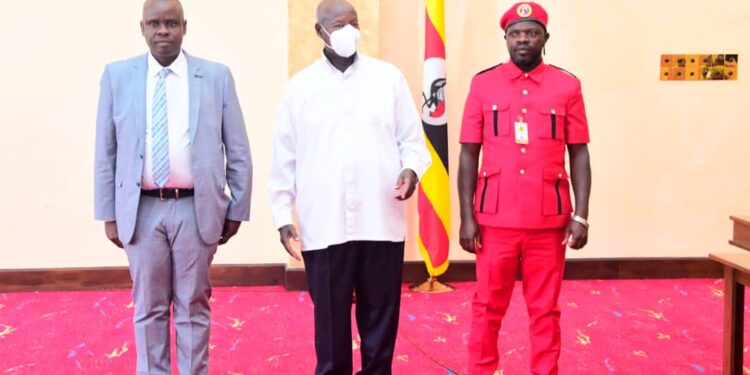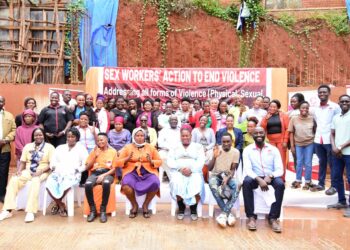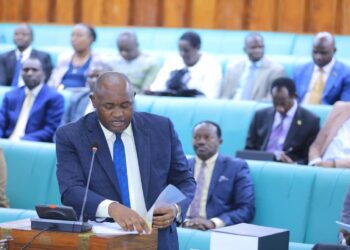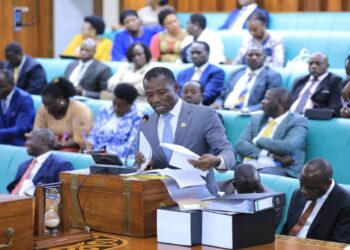For over four years, 19 supporters of the National Unity Platform (NUP) languished in detention, arrested before and after Uganda’s 2021 general elections. Accused of various offenses, these individuals faced military trials in Makindye, their cases mired in complexity and political tension. Many had given up hope of ever walking free. Yet, in a surprising twist, their release has come to symbolize the quiet but impactful diplomacy of Youth Minister Balaam Baruhagare, whose intervention proved decisive.
The prisoners, detained amid Uganda’s fraught political climate, represented a microcosm of the youth disillusionment that has fueled opposition politics. Their plight had drawn national and international attention, with lawyers, diplomats, and politicians attempting to secure their freedom. However, all efforts had failed until Balaam, appointed Youth Minister mid-2024, took on the challenge with a clear strategy and determination.
A Minister with a Plan
When Balaam assumed his ministerial role, he recognized the pressing need for reconciliation and bridging the political divide. His promise to engage President Yoweri Kaguta Museveni for a resolution to the NUP detainees’ situation was met with skepticism. Many doubted that a Youth Minister could succeed where seasoned legal and political actors had faltered. Yet Balaam’s approach was grounded in pragmatism, leveraging his rapport with the president and his understanding of Uganda’s political dynamics.
Balaam’s intervention began with initiating dialogue with key stakeholders, advocating for a pre-bargain arrangement that would pave the way for the detainees’ release. He worked to ensure a “soft conviction” process, a legal strategy that allowed the detainees to plead to lesser offenses, setting the stage for a presidential pardon. This method, though unconventional in Uganda’s political landscape, proved effective. President Museveni, acknowledging Balaam’s efforts, granted the pardon, leading to the release of the 19 NUP supporters.
Breaking the Cycle of Failure
This accomplishment stands out not only for its result but also for the context in which it occurred. Previous attempts to free the detainees had collapsed under the weight of political and legal complications. High-profile lawyers failed to navigate the complex military court system. Diplomats seeking a mediated solution hit dead ends. Even opposition politicians, some of whom had championed the detainees as symbols of state oppression, could not secure their release.
Balaam’s success highlights the potential of strategic engagement over confrontation. His intervention showcases a different kind of political leadership—one that prioritizes results over rhetoric. Commentator Charles Rwomushana, speaking on NBS TV’s Barometer show, lauded Balaam for his heroic role, emphasizing that such interventions are rare in Uganda’s political history.
A Missed Opportunity for Gratitude?
Despite the significance of this achievement, it has not been universally celebrated. Critics, particularly from opposition circles, have accused Balaam and the government of exploiting the release for political mileage. They argue that the detainees should never have been imprisoned in the first place. While this perspective underscores the deep mistrust between Uganda’s political factions, it also obscures the reality of Balaam’s contribution.
As Rwomushana pointed out, political prisoners rarely benefit from such high-level ministerial interventions. Balaam’s role deserves recognition, not only for securing the detainees’ freedom but also for demonstrating the possibility of resolving politically sensitive issues through dialogue and compromise.
The Road Ahead for Uganda’s Youth
The release of the NUP detainees raises broader questions about the future of Uganda’s youth. Many young people, disillusioned by unemployment and limited opportunities, have turned to opposition politics as an outlet for their frustrations. Balaam, as Youth Minister, has expressed a commitment to addressing these underlying issues. His focus on skilling and job creation aims to empower young Ugandans, providing them with the tools to contribute productively to their country.
For the 19 former detainees, reintegration into society will be a crucial next step. Balaam’s continued involvement could ensure they receive the support they need to rebuild their lives. Beyond individual cases, his broader youth-focused initiatives could help restore faith in the system and reduce the adversarial nature of Uganda’s political discourse.
A Lesson in Leadership
Balaam Baruhagare’s handling of the NUP detainees’ case offers valuable lessons in leadership and conflict resolution. It underscores the importance of persistence, dialogue, and a willingness to engage with opposing perspectives. At a time when Uganda’s political landscape remains polarized, such efforts are a reminder that even the most contentious issues can find solutions through goodwill and strategic action.
As the 19 NUP supporters begin their new chapter, their release stands as a testament to the power of quiet diplomacy. Balaam’s role in this process, though controversial to some, highlights his potential to bridge divides and shape a more inclusive future for Uganda’s youth. For that, he deserves not only recognition but also continued support in his efforts to uplift the nation’s young population.
Do you have a story in your community or an opinion to share with us: Email us at editorial@watchdoguganda.com













